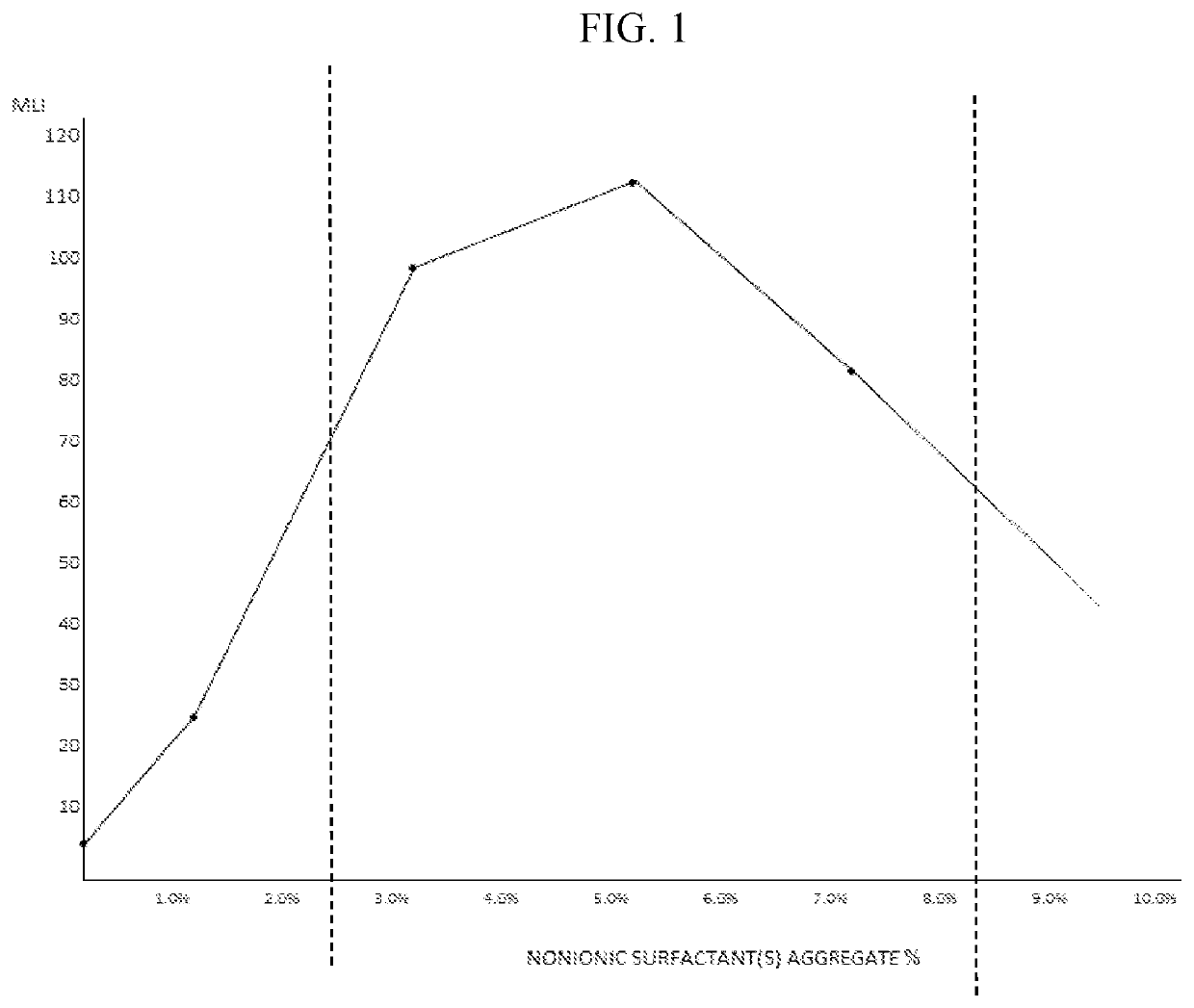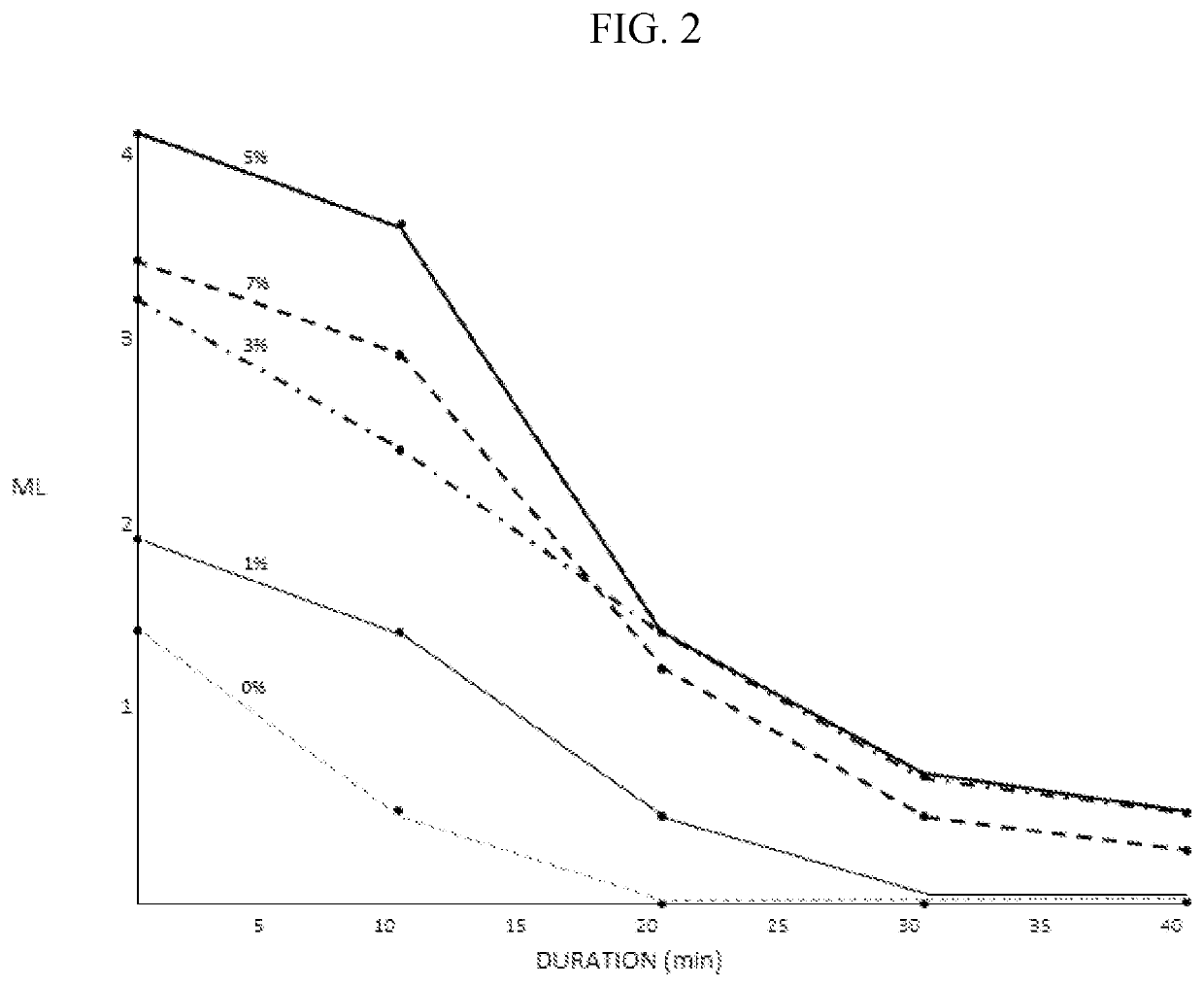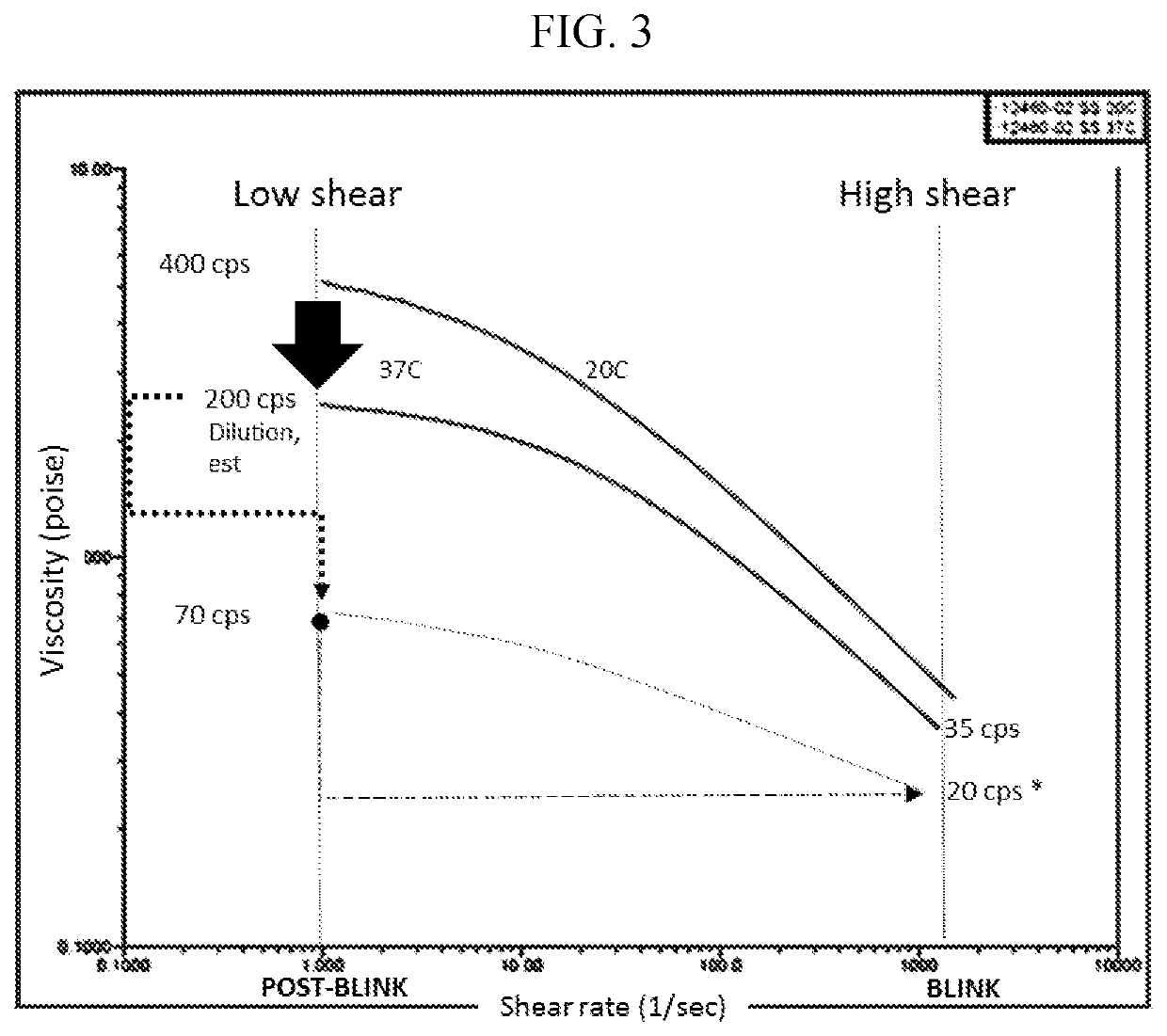Opthalmological compositions and methods of use thereof
- Summary
- Abstract
- Description
- Claims
- Application Information
AI Technical Summary
Benefits of technology
Problems solved by technology
Method used
Image
Examples
example 1-moisture
-Lock™ Effect as a Function of Nonionic Surfactant Concentration
[0760]Moisture-Lock™ is defined by the Moisture-Lock™ Index. The Moisture-Lock™ Index is calculated by multiplying the duration of the wetting effect in minutes by the qualitative wetness felt along the tear menisci of the lower lids, rated from 0 to 4.0, maximum, for a specific duration of time sampled in equal increments. Alternatively, it can be calculated by multiplying the duration of the wetting effect by the tear prism in millimeters, which is coined Moisture-Lock™ Index 2. The value of the qualitative method over the quantitative is the sensation of moisture. Moisture is the exact corollary to dryness from which 10 million U.S. citizens alone are afflicted. In most cases of dry eye syndrome, it is the sensation of dryness and related burning and irritation that are the most common debilitating symptoms. Additional symptoms include reduced contrast acuity, Snellen acuity, increasingly severe discomfort and frank ...
example 2
Lock™ Effect after Induced Tearing
[0762]The following experiment was conducted to test the enhanced Moisture-Lock™ effect of compositions of the present invention that induce tearing. The Moisture-Lock effect was measured as duration of sensation of increased moisture and compared to a control artificial tear (Nanotears® XP). 2 drops of a composition of the present invention comprising polysorbate 1.5% w / v, poloxamer 407 0.20% w / v, poloxamer 188 1.0% w / v, hydroxy propyl gamma cyclodextrin 1.0% w / v; mannitol 2.5% w / v; MgCl2 0.10% w / v; hydroxypropyl methyl cellulose 1.30% w / v, NaCl 0.45% w / v, citrate buffer 3 mM; and menthol 0.07 mM with a pH of 5.5 (“composition S2-2”) was instilled in one eye of the first patient. 2 drops of Nanotears® XP were instilled in one eye of a second patient. Moisture was quantified from 1-4 at 5-minute intervals from 5 to 50 minutes. Results can be seen in Table 12 below.
TABLE 12Sensation of Moisture following instillationof a composition of the present in...
example 3
Comfort and Initial Instillation Qualities
[0764]Composition X:[0765]3.00% Polysorbate 80[0766]0.10% Poloxamer 188[0767]0.01% Polyoxyl Castor oil[0768]0.50% HPMC[0769]2.50% Mannitol[0770]0.10% MgCl2 [0771]0.75% NaCl[0772]3 mM Phosphate buffer[0773]pH 7.00
Method
[0774]One drop of Composition X was applied to the right eye and one drop of Refresh Liquigel® applied to the left eye. After 30 minutes, a qualitative tear breakup time was calculated. A qualitative test was considered more meaningful in terms of assessment of clinical benefit because observing and measuring quantity typically require addition of a stain such as fluorescein. Further, the purpose of measuring the tear break up time is to assess when the tear film breaks up and dellen formation (dry spots) begin to form. This test was based on a) onset of stinging and b) onset of reflex tearing vs. time without a blink. Visual blur following instillation was assessed as the time required to read 4-point font at 40 cm that could ...
PUM
| Property | Measurement | Unit |
|---|---|---|
| Fraction | aaaaa | aaaaa |
| Fraction | aaaaa | aaaaa |
| Fraction | aaaaa | aaaaa |
Abstract
Description
Claims
Application Information
 Login to View More
Login to View More - R&D
- Intellectual Property
- Life Sciences
- Materials
- Tech Scout
- Unparalleled Data Quality
- Higher Quality Content
- 60% Fewer Hallucinations
Browse by: Latest US Patents, China's latest patents, Technical Efficacy Thesaurus, Application Domain, Technology Topic, Popular Technical Reports.
© 2025 PatSnap. All rights reserved.Legal|Privacy policy|Modern Slavery Act Transparency Statement|Sitemap|About US| Contact US: help@patsnap.com



